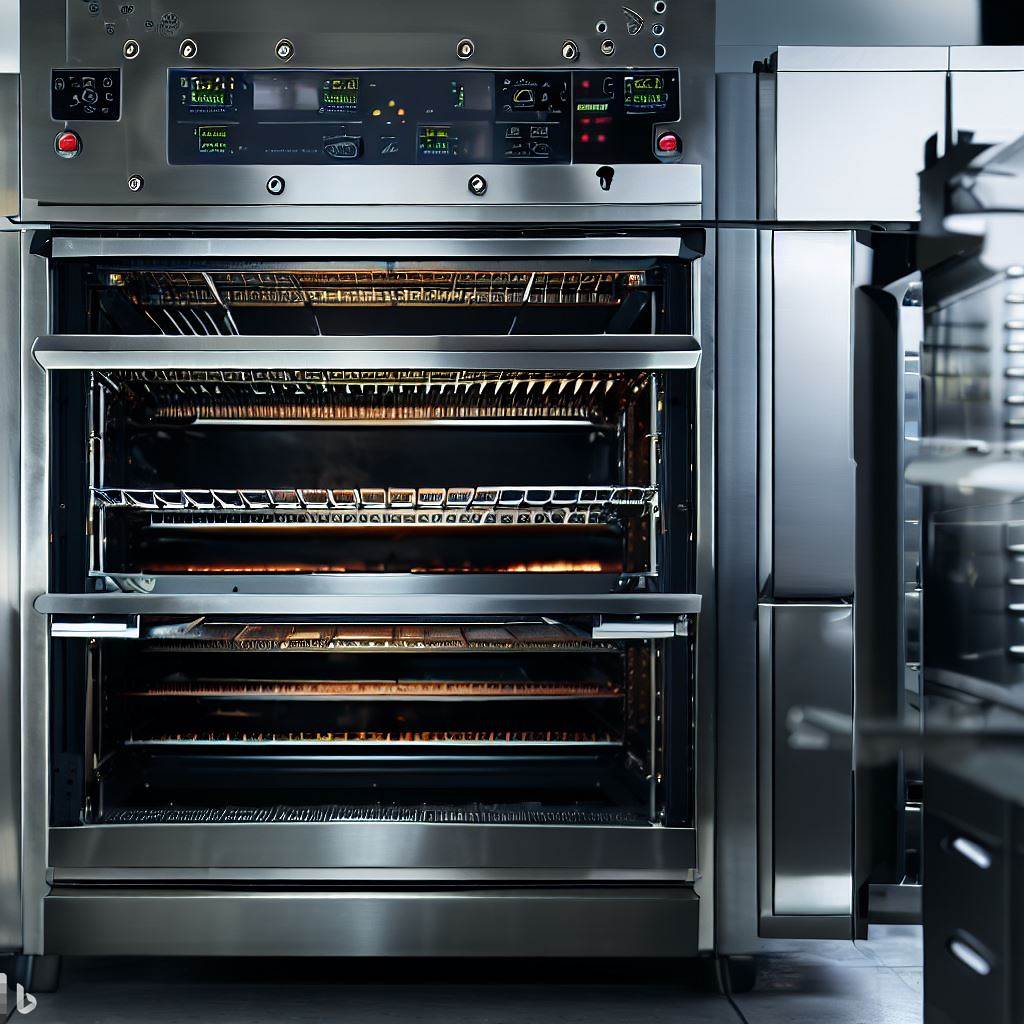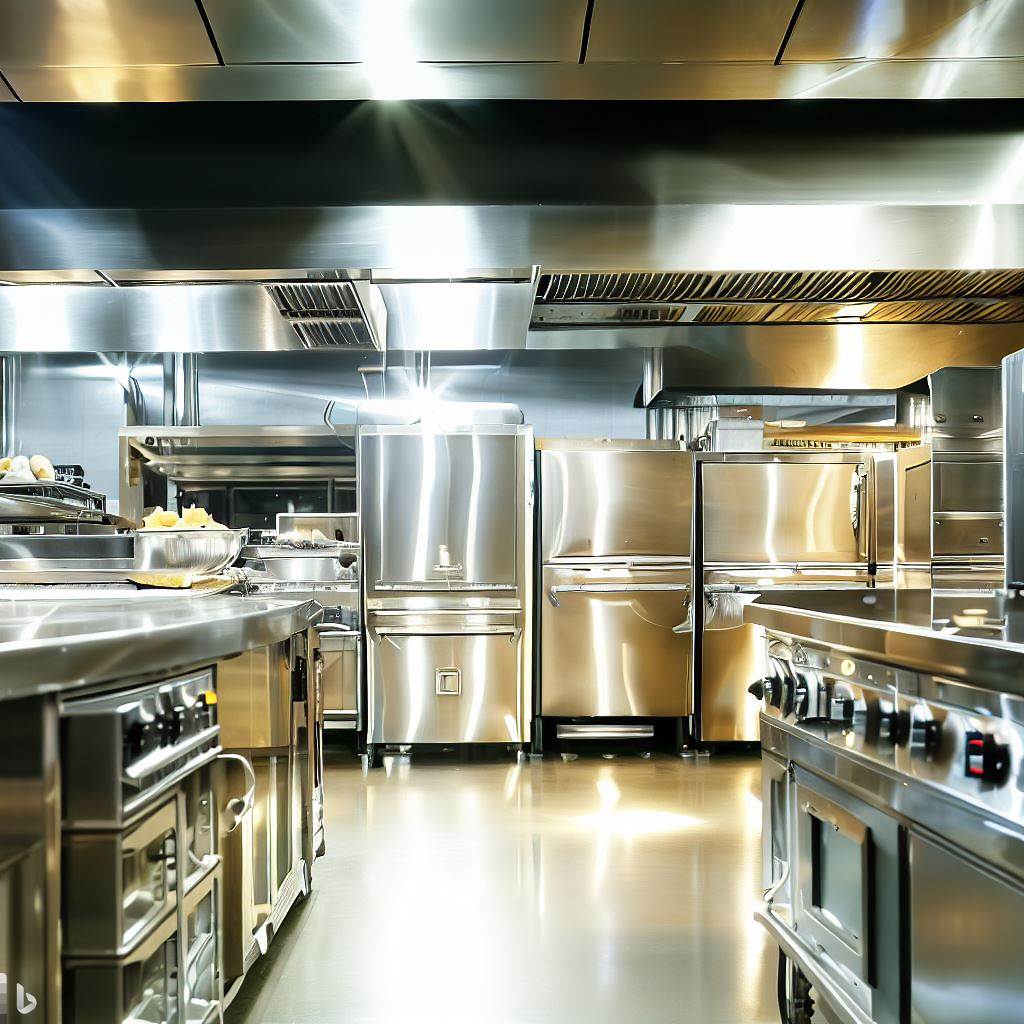Introduction:
In the bustling world of food service and hospitality, the backbone of any successful kitchen lies in its equipment. Industrial kitchen equipment is vital in enhancing productivity, ensuring food safety, and maintaining consistency in culinary operations. From commercial-grade ovens to high-capacity refrigeration systems, the right equipment can make a significant difference in the efficiency and success of a professional kitchen. In this comprehensive guide, we will explore the essential industrial kitchen equipment that every food service establishment should consider.
Commercial Ovens:

Commercial ovens are the workhorses of any industrial kitchen. With their larger capacity, faster cooking times, and precise temperature control, they enable chefs to handle high volumes of food with consistent results. Whether it’s a conventional oven, convection oven, or a combination oven, investing in a reliable and versatile oven can revolutionize the cooking process, allowing for the preparation of a wide range of dishes efficiently and with excellent quality.
Refrigeration Systems:
Proper food storage is crucial for maintaining freshness, preventing spoilage, and complying with food safety regulations. Industrial-grade refrigeration systems, such as walk-in coolers and freezers, blast chillers, and reach-in refrigerators, provide ample space for storing ingredients and preparing dishes at the right temperatures. These systems ensure that perishable items are preserved in optimal conditions, minimizing waste and maximizing food safety.
Commercial Mixers and Food Processors:
For bakeries, pizzerias, and establishments with a heavy focus on dough-based products, commercial mixers are indispensable. They can handle large quantities of dough, reducing labor-intensive tasks and improving consistency in the production process. Food processors are also invaluable tools in industrial kitchens, allowing for efficient chopping, slicing, and blending of ingredients. They save time and effort, enabling chefs to focus on other crucial aspects of food preparation.
High-Performance Grills and Griddles:
Grilling and griddling are popular cooking methods in many commercial kitchens. Industrial-grade grills and griddles offer superior heat distribution and control, allowing for quick and precise cooking of meats, vegetables, and other grilled items. They are designed for heavy-duty use, with durable materials and features that make them easy to clean, making them ideal for high-volume establishments.
Dishwashing Systems:
Efficiently managing dishwashing and utensil cleaning is essential in maintaining a smooth operation in any kitchen. Industrial dishwashing systems, such as conveyors and commercial dishwashers, offer high capacities and fast cleaning cycles, ensuring a constant supply of clean dishes and utensils. They reduce labor costs, enhance sanitation practices, and contribute to a streamlined workflow in busy kitchens.
Conclusion:
Investing in the right industrial kitchen equipment is a strategic decision that can significantly impact a food service establishment’s efficiency, productivity, and success. From commercial ovens to refrigeration systems, mixers, grills, and dishwashing equipment, each piece of equipment plays a vital role in the overall operation. By carefully selecting and utilizing the appropriate industrial kitchen equipment, chefs and food service operators can optimize their workflow, maintain food quality, and exceed customer expectations. Remember, a well-equipped kitchen is the foundation for culinary excellence and a thriving business in the competitive world of food service.

